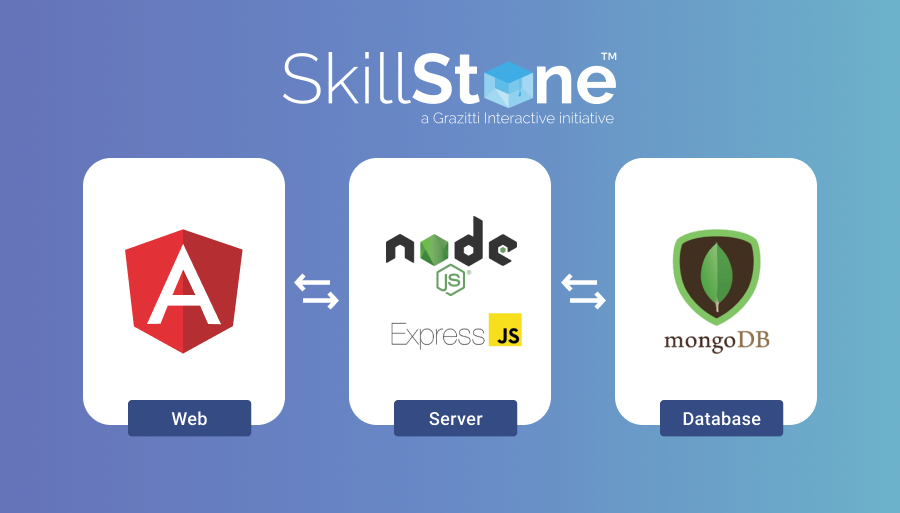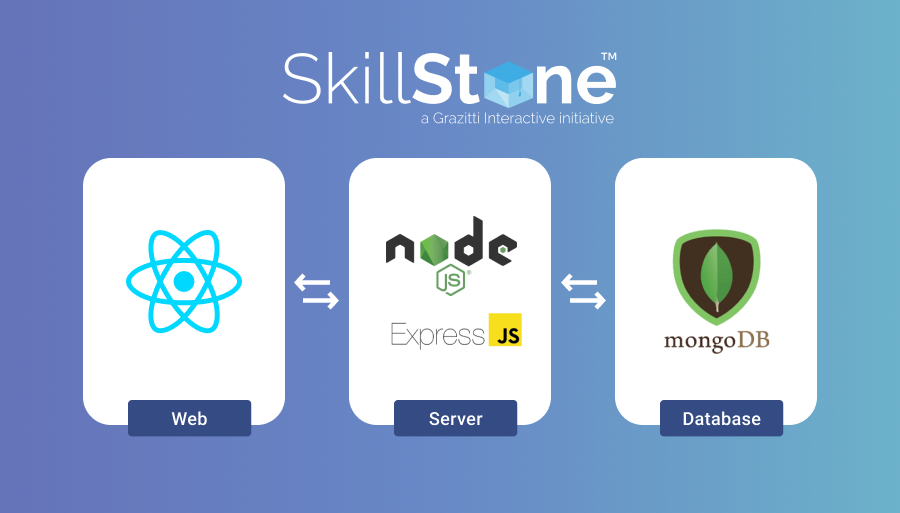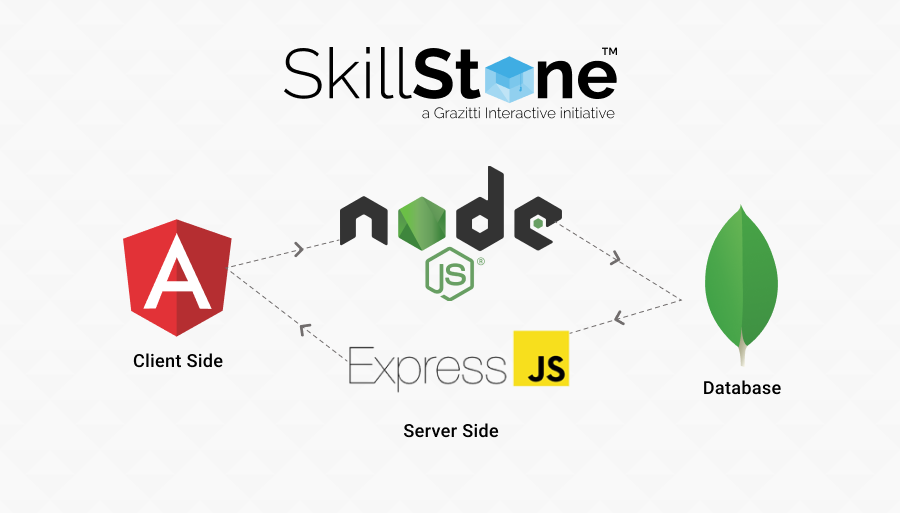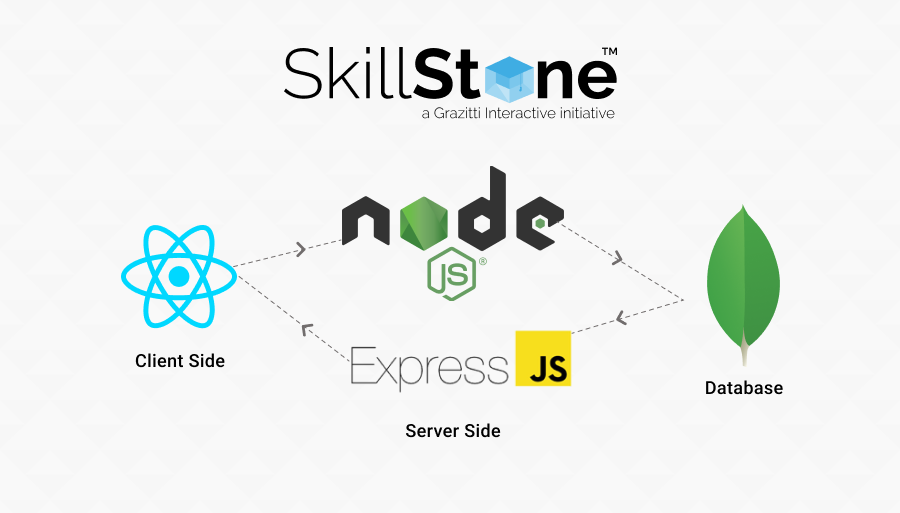MEAN Stack vs MERN Stack- Choosing the Right Stack To Learn in 2023
In the field of web application development, full-stack development has gained a lot of popularity.
Full-stack development refers to the development of both the front-end and back-end of an app. Thus, the demand for full-stack developers is rising tremendously because they have the skills to design the entire design structure of an app or a website. They are capable of working on the frontend, backend, database, and debugging of apps or websites.
And when it comes to full-stack development, there are different frameworks available - MEAN stack and MERN stack.
In this blog post, we discuss in detail the MEAN and MERN stacks and answer the most asked question - MEAN Stack VS MERN Stack and which one you should learn.
But first, let’s look at the most popular technology stacks available:
MEAN Stack
MEAN stands for MongoDB-ExpressJS-AngularJS-NodeJS. All four frameworks are Javascript-based. Together, they can create a full-fledged website/web app.
MERN Stack
MERN stands for MongoDB-ExpressJS-ReactJS-NodeJS. React is another front-end library like Angular.
LAMP Stack
LAMP stands for Linux, Apache, MySQL, and PHP. It’s commonly used by web developers because this software stack was among the first to appear and it’s reliable and simple to use.
LEMP Stack
LEMP stands for Linux, Nginx, MySQL, and PHP. This stack is similar to the previous one, with the only difference in the usage of Nginx instead of Apache.
MEAN and MERN stacks are the most popular and commonly used frameworks.
Let’s dig deep into what exactly MEAN and MERN Stacks are.
What is the MEAN stack?
The MEAN Stack is a modern approach to web development. It can be termed as a collection of JavaScript-based web development technologies that assist in building robust websites and applications. MEAN is a free, open-source JavaScript framework with an extensive suite of built-in testing tools.
- MongoDB — document database
- Express(.js) — Node.js web framework
- Angular(.js) — a client-side JavaScript framework
- Node(.js) — the premier JavaScript web server
Architecture of MEAN Stack

Advantages of the MEAN stack
MEAN applications can be used in many ways with a cross-platform write-once approach. While MEAN is particularly suited to real-time applications, specifically to those running natively in the cloud and single-page web applications built in Angular.js, it can be used for other use cases such as:
- Workflow management tools
- News aggregation sites
- Todo and calendar applications
- Interactive forums
Since all the components are based on JavaScript and JSON, the integration between the components of the stack is intuitive and straightforward.
Additionally, the E and A of MEAN (Express and Angular) are two of the most popular and well-supported JavaScript frameworks for back-end and front-end development, respectively. Express makes routing and managing HTTP requests and responses easy, and includes great support for middleware to handle JSON endpoints and form posts. Angular is a powerful tool for building dynamic HTML pages that communicate with a back-end server.
Whether you’re building a high-throughput API, a simple web application, or a microservice, MEAN is the ideal stack for building Node.js-based applications.
All of the MEAN stack components are open source, and therefore make it easier for developers to learn them.
The MERN Stack
MERN Stack is a common alternative to MEAN Stack, where traditional Angular.js is replaced by React.js and makes the development process much smoother and easier.
‘MERN’ is an acronym made up of a set of technologies, namely, MongoDB, Express.js, React.js, and Node.js. Let’s dig into what each of these components does:
Architecture of MERN Stack

Advantages of the MERN Stack
Let’s start with MongoDB.
MongoDB is the document database at the root of the MERN stack. It is designed to store JSON data natively, and everything - from its command line interface to its query language - is built on JSON and JavaScript.
MongoDB works extremely well with Node.js, and makes storing, manipulating, and representing JSON data at every level of your application incredibly easy. For cloud-native applications, MongoDB Atlas is available which gives you an auto-scaling MongoDB cluster on the cloud provider of your choice.
Express.js is a server-side application framework that wraps HTTP requests and responses and makes it easy to map URLs to server-side functions. React.js is a front-end JavaScript framework for building interactive user interfaces in HTML and communicating with a remote server.
The combination means that JSON data flows effortlessly from front to back, making it fast to build on and reasonably simple to debug. Plus, you only have to know one programming language, and the JSON document structure, to understand the whole system!
MERN is one of the most preferred stacks for developers who are looking to make a successful career in the web stack development field.
- MERN stack developers implement design thinking with enhanced expertise in various technologies.
- They develop fully-functional applications in the shortest time possible.
ANSWERING THE ULTIMATE QUESTION: MEAN Stack VS MERN Stack - Which should you learn?
This presentation of their architecture will let you delve into the major differences between MEAN and MERN.


Let's compare their performances first
Angular JS has finally come up with its stable versions. Initially, Angular JS was quite unstable and it had undergone major changes from version 1 to version 2. However, today it stands stable as a great JavaScript-based framework. It helps you maintain better abstraction in your coding and manage files in a better way. On the other hand, React JS helps you develop code at a faster rate. Moreover, being merely a library, React JS performs fairly better than Angular JS.
And now the architectural debate An enterprise-level project like LinkedIn preferred MEAN stack over MERN. The main reason was to maintain the architecture of the app. Although the MERN stack makes UI rendering considerably simpler, it is just a library. It just provides means to make rendering easy. Thus, the MEAN stack is preferable for an enterprise-level architecture.
Which One Allows You To Use Third-Party Libraries With Ease?
When it comes to developing a large-scale application, we tend to use multiple third-party libraries to serve a variety of purposes. Angular JS, being a framework, comes with ready-to-use features that ease the use of third-party libraries.
Thus, when it comes to adding features to the application, React JS involves additional configurations while Angular JS makes it a plug-and-play job.
A Quick Round-up
From the above discussion, we could conclude that both MEAN and MERN stacks are reliable frameworks for rapid web development. They result in lightweight JavaScript applications. However, the major difference lies in the way it is structured. This makes the MEAN stack a better option for large-scale applications while the MERN stack is ideal for developing smaller applications.
At SkillStone, we have carefully crafted short-duration courses to help you learn all the relevant technologies we’ve spoken about in this blog post.
If you have any questions, feel free to speak to our experts at SkillStone at [email protected] or reach our direct line at +91-9914843366. We’ll be more than happy to answer any questions you may have and help you steer your career in the right direction.




